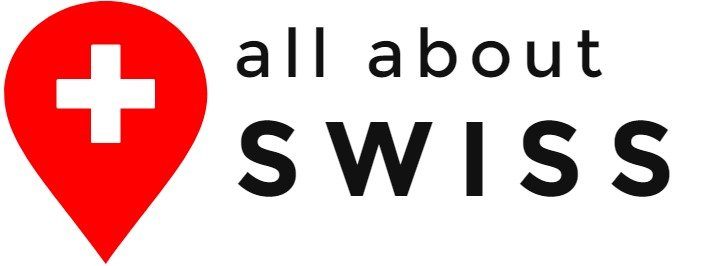Switzerland is renowned for its high standard of healthcare, consistently ranking among the best in the world. The Swiss healthcare system is a combination of public and private options, with mandatory health insurance coverage for all residents. Understanding the intricacies of Swiss healthcare is crucial for expats, whether you’re settling in for work, study, or long-term residency.
This article will guide you through registering for Swiss health insurance, the differences between public and private healthcare, finding English-speaking doctors and specialists, and navigating emergency services and pharmacies in Switzerland.
How to Register for Swiss Health Insurance (Mandatory Coverage)
Switzerland operates under a universal healthcare system where health insurance is mandatory for all residents, including expats and foreigners living in the country for more than three months. However, unlike many other countries with universal healthcare, Switzerland does not offer a government-run health insurance program. Instead, healthcare is financed through a system of private health insurance companies.
1. Who Needs to Get Health Insurance?
Every resident of Switzerland is legally required to have basic health insurance, regardless of nationality, employment status, or whether you’re covered by an international policy. This includes:
- Swiss nationals and permanent residents
- Expats and foreign workers staying in Switzerland for more than 90 days
- Students, retirees, and long-term visitors
You must sign up for Swiss health insurance within three months of moving to the country, although coverage will be backdated to the day you arrived. If you fail to register within this time frame, the local authorities may assign you an insurance plan, which could result in higher costs.
2. Choosing a Health Insurance Plan
Switzerland has a wide range of health insurance companies offering mandatory basic coverage, known as Lamal (L’Assurance Maladie) in French or KVG (Krankenversicherungsgesetz) in German. All insurance providers must offer the same level of basic care, but they differ in terms of premiums, service quality, and supplementary options.
Basic Health Insurance (Lamal/KVG)
Basic health insurance covers essential medical services, such as:
- Visits to general practitioners (GPs) and specialists
- Hospital stays and treatments
- Prescription medications
- Maternity care
- Vaccinations
- Emergency treatment and ambulance services
While the coverage is the same across all insurers, the premiums vary depending on factors such as your age, health, canton of residence, and insurance provider. It’s important to compare different health insurance providers using comparison websites like Comparis or Priminfo, which allow you to filter by cost, benefits, and language preferences.
Supplementary Insurance
In addition to basic insurance, you can opt for supplementary insurance (called Zusatzversicherung in German or Assurance Complémentaire in French), which covers additional services that aren’t part of the basic package. Supplementary insurance is optional but can provide access to:
- Private or semi-private hospital rooms
- Alternative treatments such as acupuncture or homeopathy
- Dental care (which is not covered under basic insurance)
- Coverage abroad
The cost of supplementary insurance can vary greatly depending on your needs and the level of care desired. Importantly, supplementary insurance companies are allowed to reject applications based on pre-existing health conditions, unlike basic insurance providers, which must accept everyone.
3. Costs of Health Insurance
The cost of health insurance in Switzerland is relatively high compared to other European countries. Premiums depend on several factors:
- Age: Young adults generally pay lower premiums than older residents.
- Location: Premiums vary by canton, with residents in cities like Zurich and Geneva paying more than those in rural areas.
- Deductible (Franchise): You can choose a deductible ranging from CHF 300 to CHF 2,500 per year. The higher the deductible, the lower your monthly premium, but this means you will have to pay more out-of-pocket before insurance kicks in.
In addition to the deductible, most policies require a co-payment of 10% for medical expenses, capped at CHF 700 per year for adults and CHF 350 for children.
4. How to Register for Swiss Health Insurance
Registering for Swiss health insurance is straightforward, but it involves several steps:
Step 1: Choose a Health Insurance Provider
Research and compare insurance providers using tools like Comparis or Priminfo to find the best plan for your needs. Consider factors such as premium cost, deductible level, language support, and supplementary coverage options.
Step 2: Submit an Application
Once you’ve chosen a provider, contact them to submit an application. You’ll need to provide your residence permit, personal identification details, and address. Most insurance companies allow you to complete this process online or over the phone.
Step 3: Confirmation of Coverage
Once your application is processed, you’ll receive confirmation of coverage along with your insurance card. This card is important, as you’ll need it when visiting doctors, specialists, or hospitals.
Step 4: Set Up Payments
You will need to set up a direct debit or manual payment to cover your monthly premiums. In Switzerland, payments can be made through your bank or via automatic debit, depending on your preference.
Public vs. Private Healthcare Options
Switzerland’s healthcare system is a mix of public and private services, and the distinction between the two can sometimes be blurred because all residents are required to have private health insurance that covers both public and private hospitals.
1. Public Healthcare
The public healthcare system in Switzerland is robust and provides access to high-quality medical care. It includes public hospitals, clinics, and GPs that accept patients with basic health insurance. The public system is well-regarded for its medical standards, highly trained staff, and modern facilities. However, public hospitals can have longer wait times for non-urgent care, especially in larger cities.
- Advantages:
- High-quality medical care across the board
- Full coverage for essential medical services through mandatory insurance
- Affordable co-payments for routine treatments
- Disadvantages:
- Potential wait times for non-emergency procedures
- Limited choice of doctors and hospitals under some basic insurance plans
- Shared hospital rooms unless you have supplementary insurance
2. Private Healthcare
Many expats opt for private healthcare to receive faster service, more choice in specialists, and access to private or semi-private hospital rooms. Private care in Switzerland is considered one of the best in the world, with private hospitals and clinics often providing state-of-the-art facilities and personalized care.
- Advantages:
- Shorter waiting times for appointments and treatments
- More choice of doctors, hospitals, and specialists
- Access to private rooms in hospitals (if covered by supplementary insurance)
- Disadvantages:
- Higher costs for services not covered by basic insurance
- Supplementary insurance can be expensive and subject to rejection based on pre-existing conditions
Most residents in Switzerland choose a hybrid approach, using public healthcare services for routine or urgent needs and private services for elective procedures or specialized care.
Finding English-Speaking Doctors and Specialists
For many expats, finding an English-speaking doctor or specialist is essential for feeling comfortable and confident when discussing medical issues. Fortunately, Switzerland is a multicultural country with many doctors and medical professionals who speak multiple languages, including English, especially in major cities like Zurich, Geneva, and Basel.
1. Where to Find English-Speaking Doctors
- Public Hospitals: Large public hospitals in urban areas are more likely to have English-speaking doctors, particularly in Geneva, Zurich, and Basel. These cities attract international professionals, and many doctors there have experience working abroad or treating foreign patients.
- Private Clinics: Private healthcare facilities and international medical centers are more likely to offer English-speaking services. Expats often prefer private clinics for specialized care, as they provide more personalized attention and flexibility in language support.
- General Practitioners (GPs): Many general practitioners (Hausarzt in German or Médecin généraliste in French) are accustomed to treating international patients. You can search for English-speaking GPs using tools such as Doctor.ch or Medgate.
- Insurance Networks: Many health insurance providers maintain lists of affiliated English-speaking doctors. When choosing your insurance plan, check whether the provider offers a network of English-speaking doctors.
2. Online Resources to Find Doctors
Several online platforms can help you find English-speaking doctors in Switzerland:
- Doctor.ch: This directory allows you to search for doctors by language, specialty, and location.
- Comparis.ch: Known for comparing insurance plans, Comparis also offers a doctor-finding tool with language filters.
- Medgate: A telemedicine service that offers consultations in multiple languages, including English. It’s ideal for expats seeking quick medical advice without visiting a clinic.
- Embassies and Expat Groups: Many foreign embassies, including the U.S. and British embassies, maintain lists of recommended English-speaking doctors. Additionally, expat groups on social media often share personal recommendations.
3. Specialist Care in Switzerland
If you need specialized care (e.g., cardiology, dermatology, orthopedics), referrals are usually necessary under the basic health insurance plan. General practitioners often act as gatekeepers to specialists, especially if you are under a family doctor model insurance plan, which requires you to visit a GP before seeing a specialist.
For private insurance holders or those with supplementary coverage, you have more flexibility in choosing a specialist and bypassing the referral process, depending on your insurance policy.
Emergency Services and Pharmacies in Switzerland
In the event of a medical emergency in Switzerland, it is essential to know how to access emergency services and pharmacies, especially for expats unfamiliar with the country’s healthcare infrastructure.
1. Emergency Services in Switzerland
Switzerland has a well-coordinated emergency medical service (EMS) that operates through public hospitals and private clinics. In case of a medical emergency, you can call the nationwide emergency number 144 for an ambulance. Emergency rooms (ERs) in Swiss hospitals are equipped to handle both minor and major medical issues.
How to Contact Emergency Services:
- 144: For medical emergencies and to request an ambulance.
- 117: For police assistance (in case of accidents or violence).
- 118: For fire-related emergencies.
- 1414: Air rescue services (REGA), which is essential for mountain or remote-area rescues.
- 145: Poison control center, offering guidance in case of exposure to toxic substances.
2. Hospital Emergency Rooms
Emergency rooms in Switzerland are available at most hospitals, with larger public hospitals typically having 24/7 emergency services. Some well-known hospitals with emergency services include:
- University Hospital Zurich (USZ)
- Hôpital de La Tour in Geneva
- Inselspital in Bern
If you hold basic health insurance, emergency treatments are covered, though you may be subject to co-payments or deductibles. For urgent care without an ambulance, you can also visit urgent care clinics (Notfall in German or Urgences in French), which may have shorter wait times than major hospitals.
3. Emergency Care Costs
Healthcare in Switzerland is not free at the point of use, so even in emergencies, you may be responsible for part of the cost. Depending on your insurance plan, you may have to pay a deductible before insurance covers the treatment, as well as a 10% co-pay. If you don’t have Swiss insurance and are a tourist or visitor, emergency medical bills can be very high, so travel insurance is strongly recommended.
4. Pharmacies in Switzerland
Pharmacies in Switzerland are called Apotheken in German, Pharmacies in French, and Farmacie in Italian. They are widely available in cities, towns, and villages, with larger cities like Zurich, Geneva, and Basel having 24-hour or late-night pharmacies for urgent medication needs.
- Opening hours: Pharmacies generally follow standard working hours, but most cities have on-call pharmacies (Notfallapotheken or Pharmacies de garde) that are open outside of regular hours, particularly for emergencies. You can find information on the nearest open pharmacy at any time by visiting websites such as Medi24 or using pharmacy apps.
- Prescription and over-the-counter medications: Prescription medications must be obtained from a pharmacy with a valid prescription from a doctor. Over-the-counter medications like painkillers and cold remedies are available without a prescription, but stronger drugs (such as antibiotics) require a prescription from a medical professional.
- Pharmacist consultations: Pharmacists in Switzerland are highly trained and can offer advice on over-the-counter treatments or minor health issues, which can sometimes negate the need for a doctor’s visit.
Conclusion
In conclusion, Switzerland’s healthcare system is comprehensive and reliable, ensuring that residents and expats alike have access to top-tier medical care. Whether through mandatory health insurance or additional private options, navigating Swiss healthcare can be straightforward once you understand the system’s intricacies. From registering for health insurance to finding English-speaking doctors, Switzerland offers a range of services that ensure you can access quality care when you need it most.

Hi, I’m Laura — a travel writer with a thing for Switzerland and Central Europe. I write practical, down-to-earth guides that help people get the most out of their trips, whether they’re navigating mountain trains in the Alps or finding the best cafés in small Czech towns. I’m based in Zurich, but I’m often on the road, notebook in hand, chasing great views, good food, and local stories. My goal? To make travel feel less overwhelming and way more fun.

